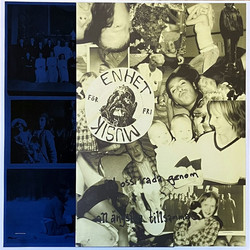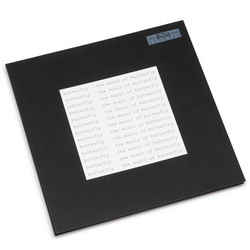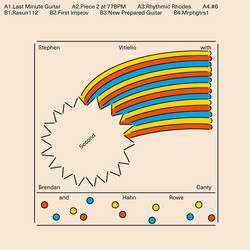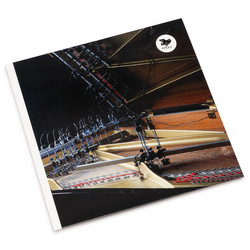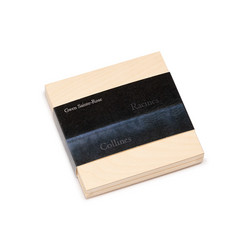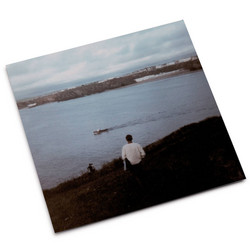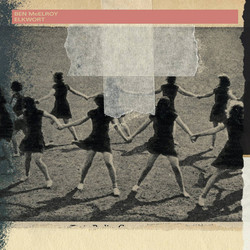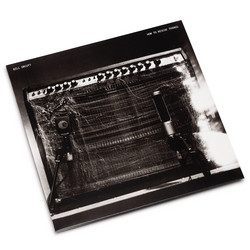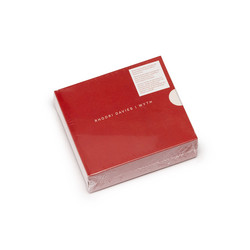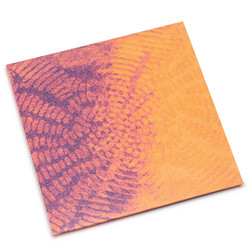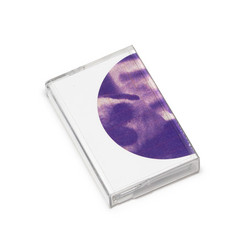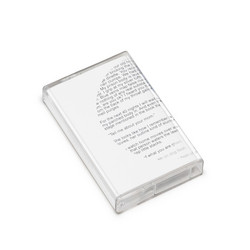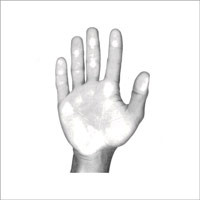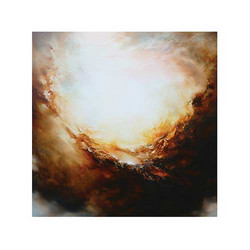Best of 2014
1
2
3
Trance-indulgence! Palace of Wind is the debut full-length release from Travis Laplante's genre-defying tenor saxophone quartet, Battle Trance. Palace of Wind is a piece that not only transcends genres, but also transcends time and space. Existing in the cracks between contemporary classical music, avant-garde jazz, black metal, ambient, and world music, Palace of Wind is an album-length composition that pushes the four saxophonists to the limit, shedding new light on the saxophone as an ensemble instrument. The players use circular breathing to build continuous, hypnotic waves of sound; multiphonics layer to create intricate textures that seem to come from an ancient time; and blisteringly fast lines seem to liquefy into each other. Unorthodox articulations and unusual fingerings are also part of the vast sonic vocabulary that the members of Battle Trance have painstakingly mastered. However, Palace of Wind isn’t merely concerned with demonstrating the virtuosity of the ensemble, nor with impressing or entertaining the listener. Instead, it is meant to be a portal of resonance where there is no separation between the listener and the sound.
Battle Trance had an auspicious inception. One morning, Travis Laplante (Little Women and a trio with bassist Trevor Dunn and drummer Ches Smith) literally awoke with the crystal clear vision that he needed to start an ensemble with three specific individuals: Matthew Nelson, Jeremy Viner, and Patrick Breiner. Laplante was actually unfamiliar with their work as musicians and had only a minimal relationship with them as individuals. He was also aware that a band of four tenor saxophones could be the worst idea ever. In spite of this, Laplante followed through and contacted Nelson, Viner, and Breiner. He gave them very little information beyond his morning experience But no one hesitated – the ensemble formed that evening.
Since many of the techniques used in the piece are nearly impossible to notate in traditional form, Palace of Wind was transmitted via the oral tradition. The rehearsals were much like martial arts training: intricate sounds were rigorously copied and repeated by the ensemble members until they perfected the techniques. Many hours were spent building the sheer strength required to sustain continuous circular breathing for extended periods. Likewise, a steady focus on physicality was required to repeat rapid note patterns for long periods without sacrificing speed. Palace of Wind is such a demanding composition that there is a high risk of physically burning out before the piece concludes, as once it begins there is no opportunity for rest or even a quick drink of water. There was also extensive training in dissolving the distinct individual identities of the players into the greater collective sound: The band did various long-tone exercises, similar to group meditation, the purpose being to blend together into one sound, so that the origin of the collective sound’s components is completely impossible to discern – even by the members of the ensemble.
Palace of Wind does embrace both the cerebral nature of composition and the visceral act of performance, but immediately locates itself, the musicians and the audience in a purely spiritual space. It is a new kind of music and therefore modern, and yet it’s absolutely primordial, the transformative act of human beings blowing air through tubes and producing something timeless.
Battle Trance had an auspicious inception. One morning, Travis Laplante (Little Women and a trio with bassist Trevor Dunn and drummer Ches Smith) literally awoke with the crystal clear vision that he needed to start an ensemble with three specific individuals: Matthew Nelson, Jeremy Viner, and Patrick Breiner. Laplante was actually unfamiliar with their work as musicians and had only a minimal relationship with them as individuals. He was also aware that a band of four tenor saxophones could be the worst idea ever. In spite of this, Laplante followed through and contacted Nelson, Viner, and Breiner. He gave them very little information beyond his morning experience But no one hesitated – the ensemble formed that evening.
Since many of the techniques used in the piece are nearly impossible to notate in traditional form, Palace of Wind was transmitted via the oral tradition. The rehearsals were much like martial arts training: intricate sounds were rigorously copied and repeated by the ensemble members until they perfected the techniques. Many hours were spent building the sheer strength required to sustain continuous circular breathing for extended periods. Likewise, a steady focus on physicality was required to repeat rapid note patterns for long periods without sacrificing speed. Palace of Wind is such a demanding composition that there is a high risk of physically burning out before the piece concludes, as once it begins there is no opportunity for rest or even a quick drink of water. There was also extensive training in dissolving the distinct individual identities of the players into the greater collective sound: The band did various long-tone exercises, similar to group meditation, the purpose being to blend together into one sound, so that the origin of the collective sound’s components is completely impossible to discern – even by the members of the ensemble.
Palace of Wind does embrace both the cerebral nature of composition and the visceral act of performance, but immediately locates itself, the musicians and the audience in a purely spiritual space. It is a new kind of music and therefore modern, and yet it’s absolutely primordial, the transformative act of human beings blowing air through tubes and producing something timeless.
"There's tremendous technical control behind what [Travis] Laplante does... splintering notes as if through a prism, using circular breathing for purposes of hypnotism." - The New York Times
"If you're already acquainted with Evan Parker, John Butcher, Colin Stetson, and Mats Gustafsson, you'll want to put Travis Laplante's name on your list of must-see saxophonists." - Georgia Straight
"If you're already acquainted with Evan Parker, John Butcher, Colin Stetson, and Mats Gustafsson, you'll want to put Travis Laplante's name on your list of must-see saxophonists." - Georgia Straight
Details
Cat. number: NNA073
Year: 2014


